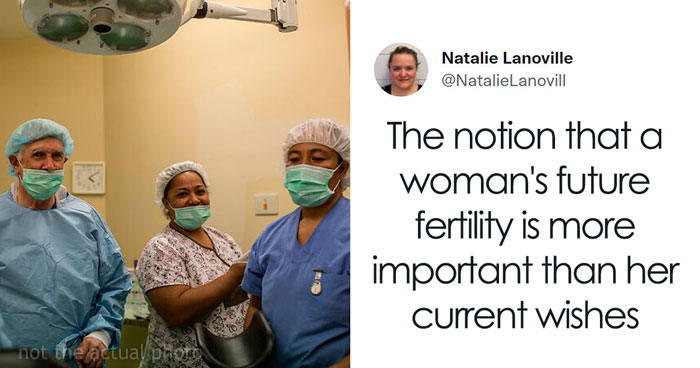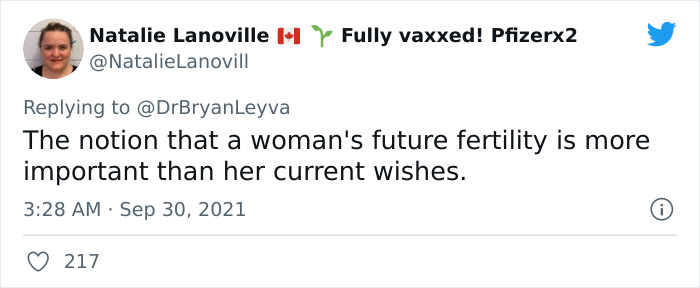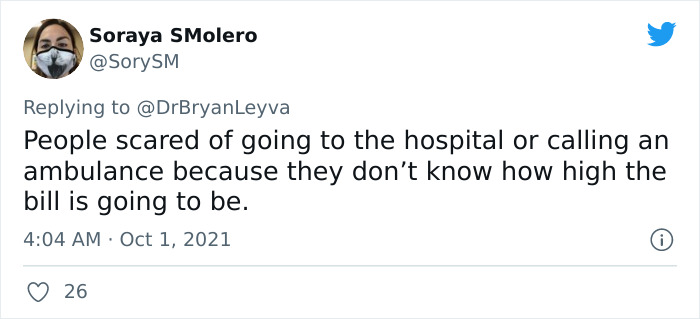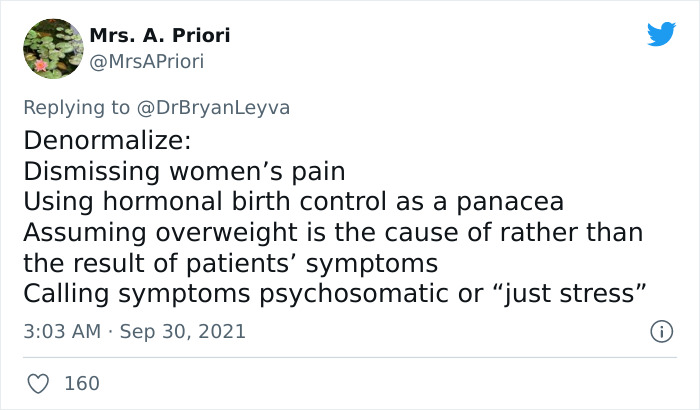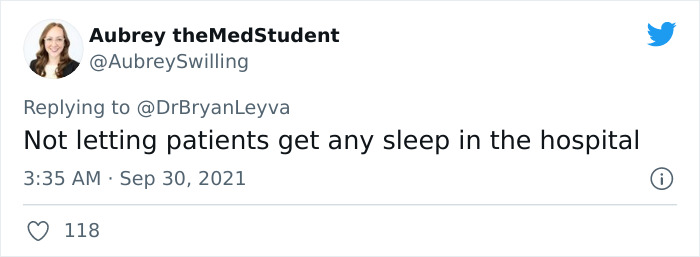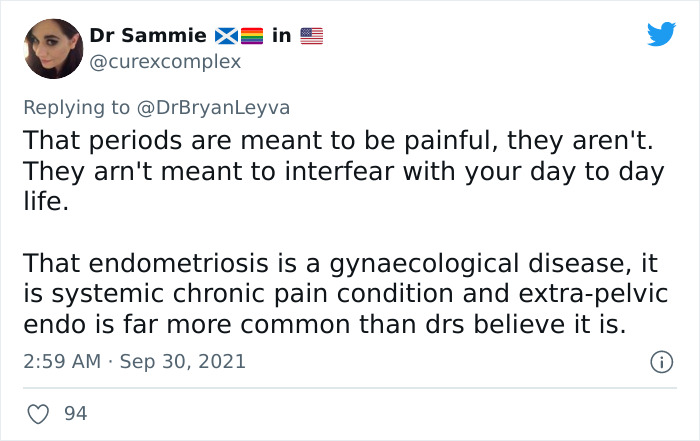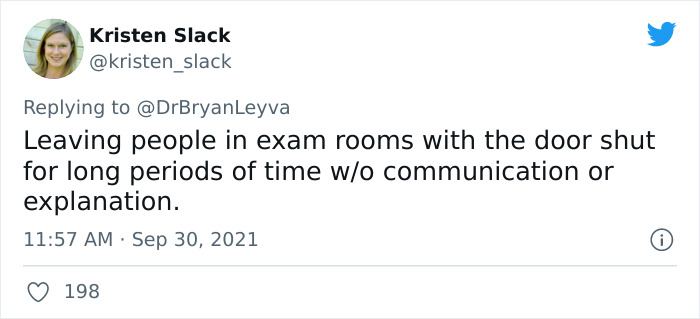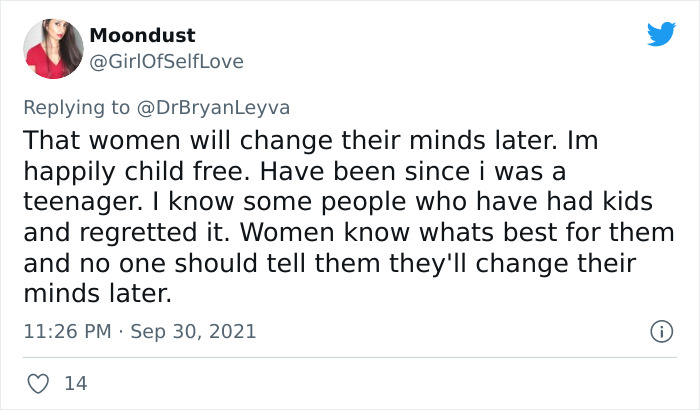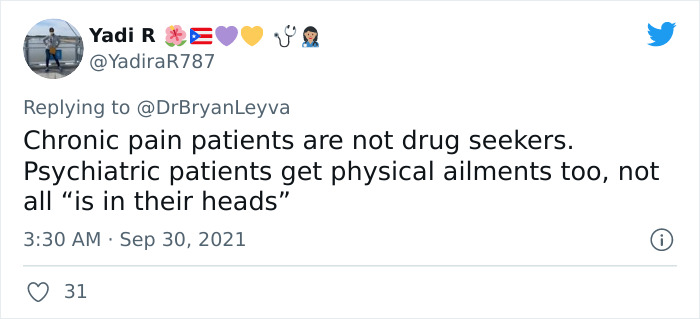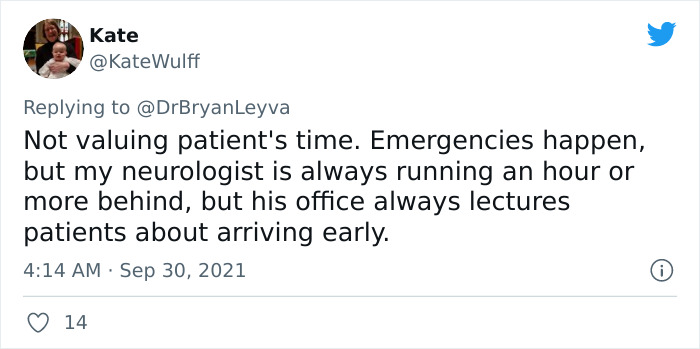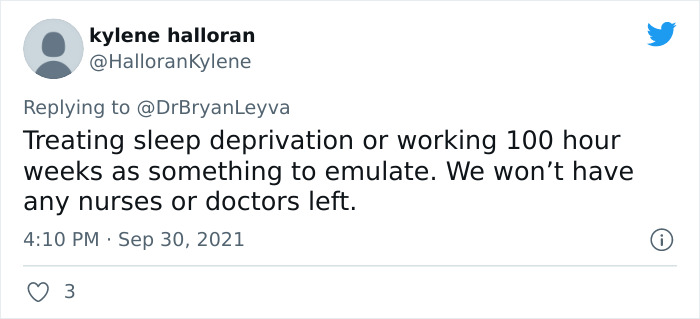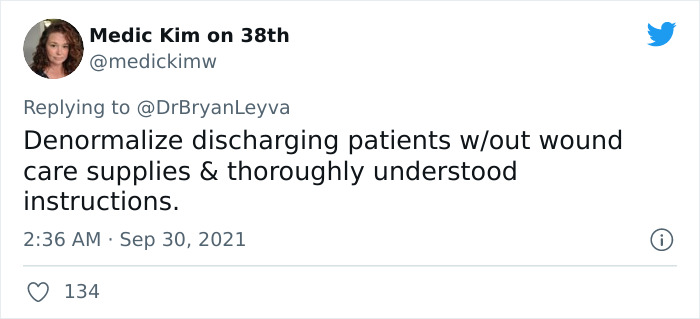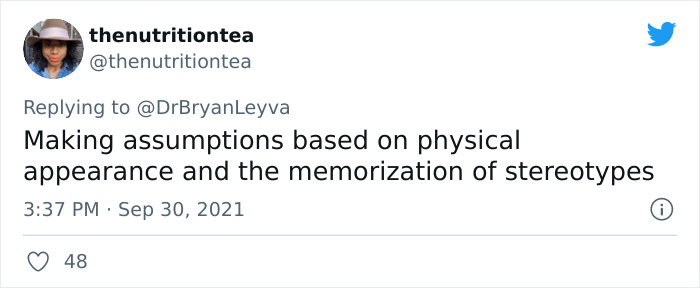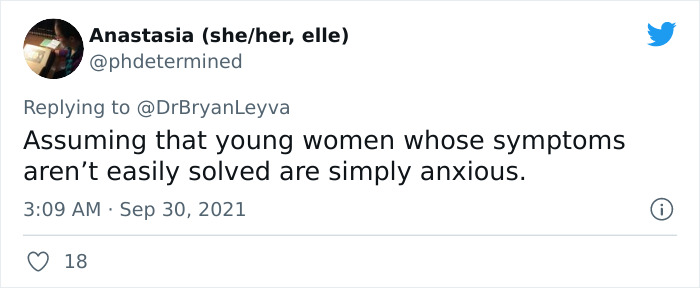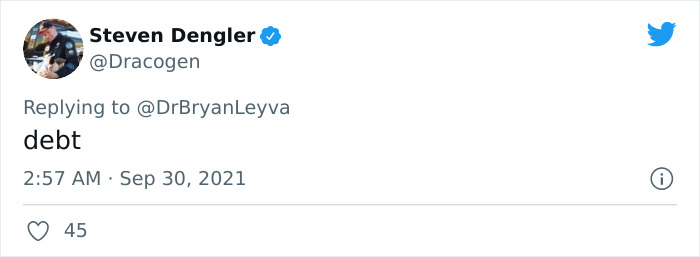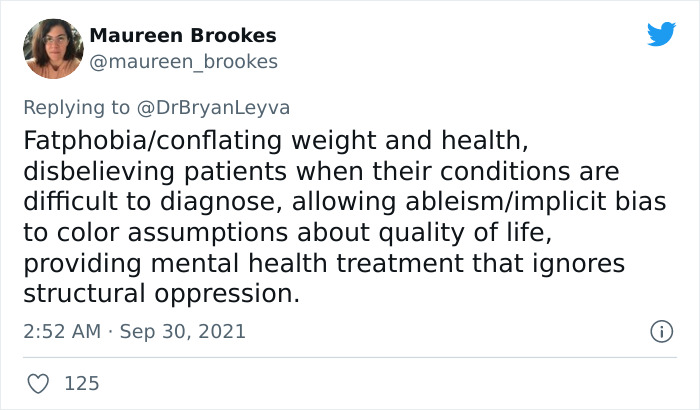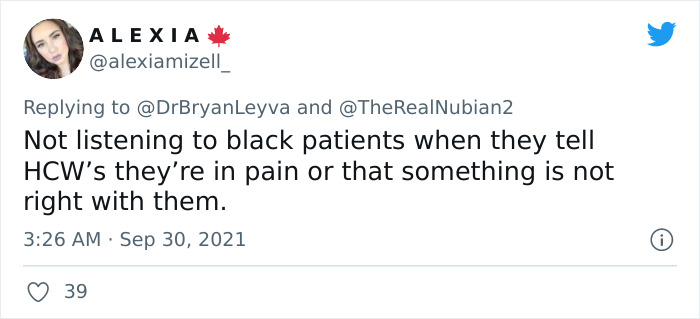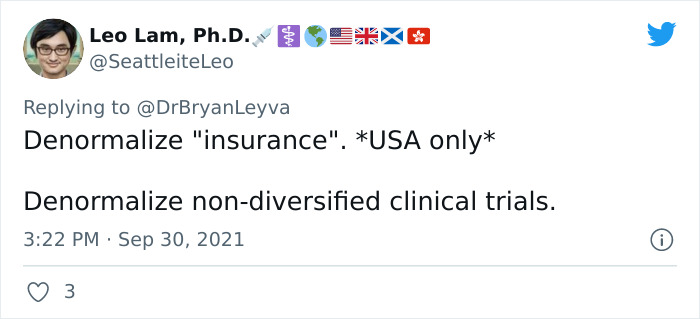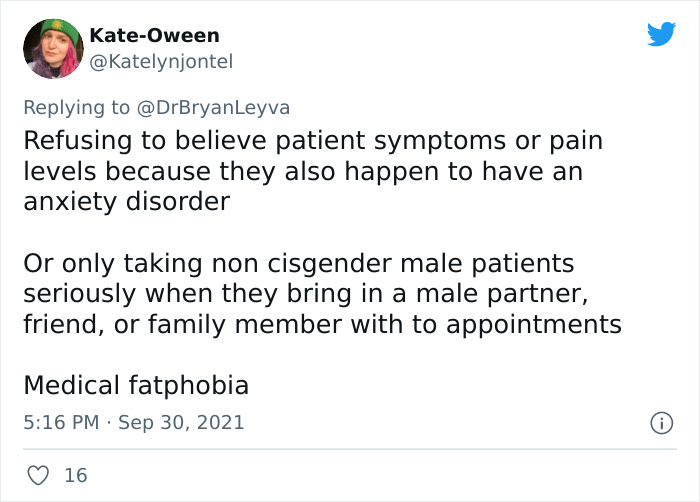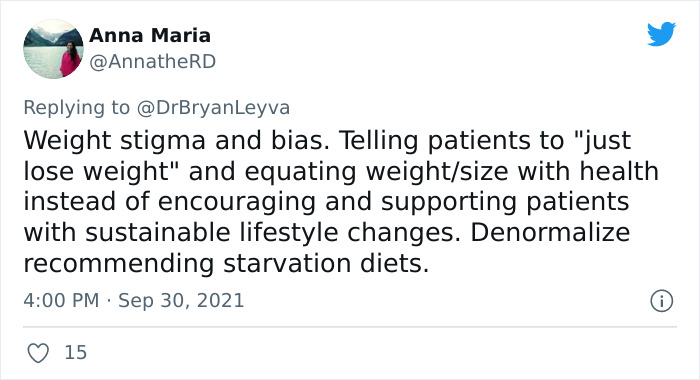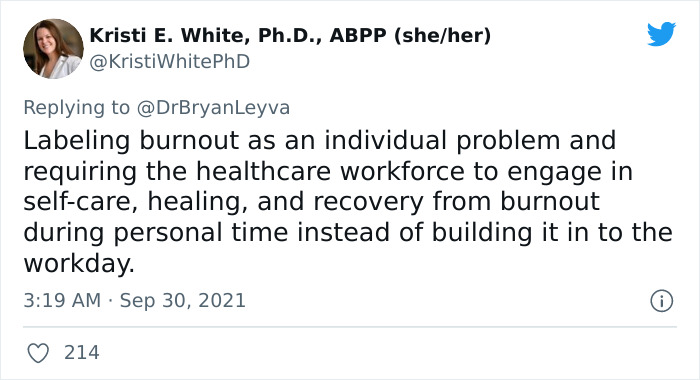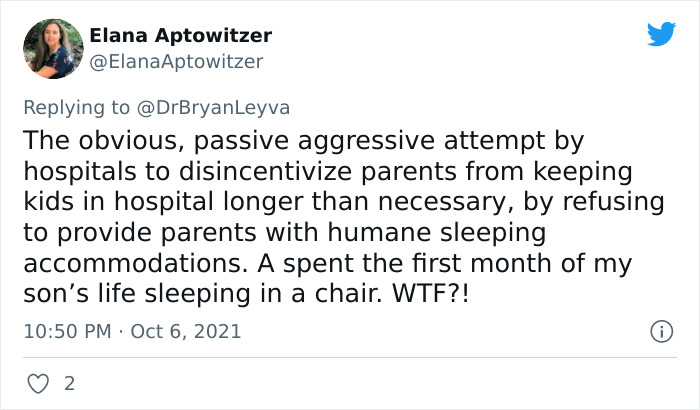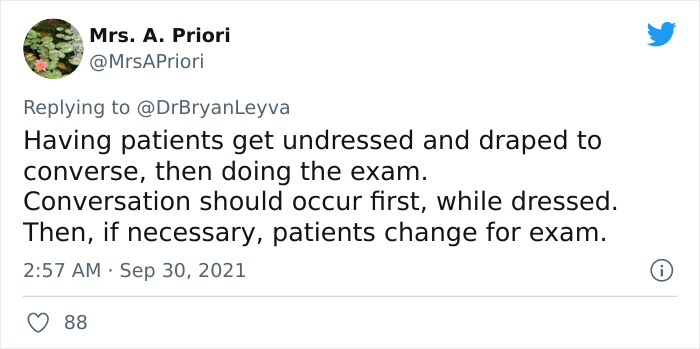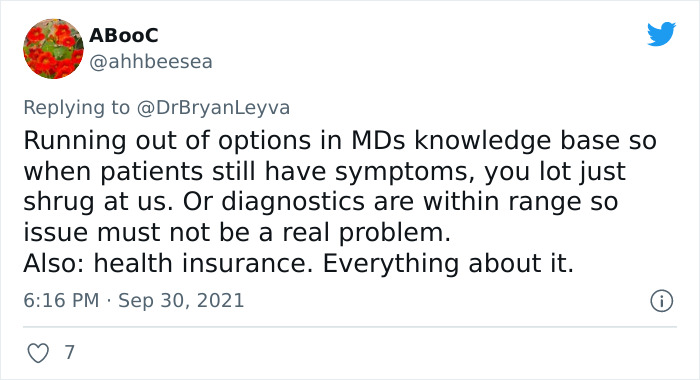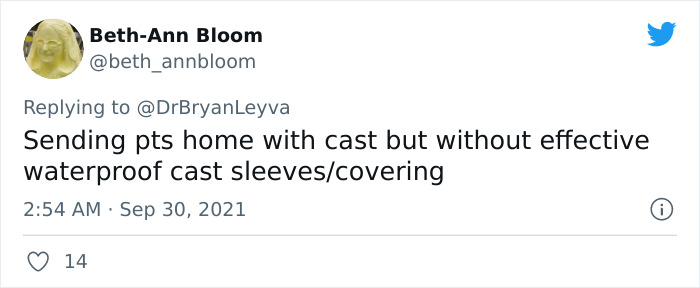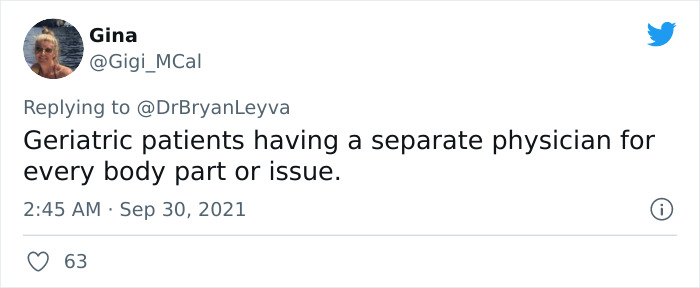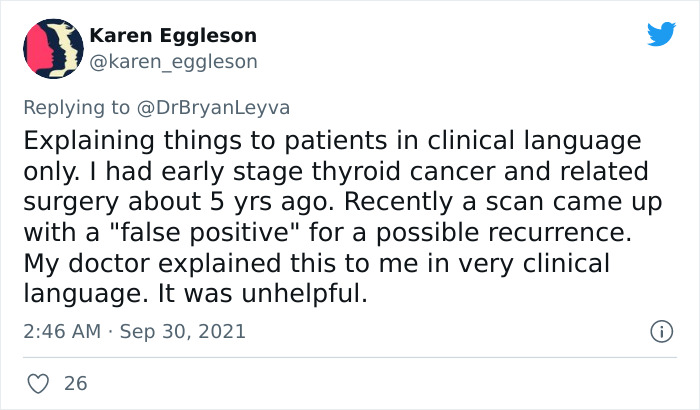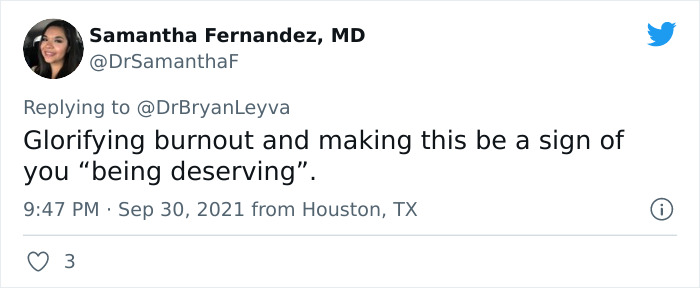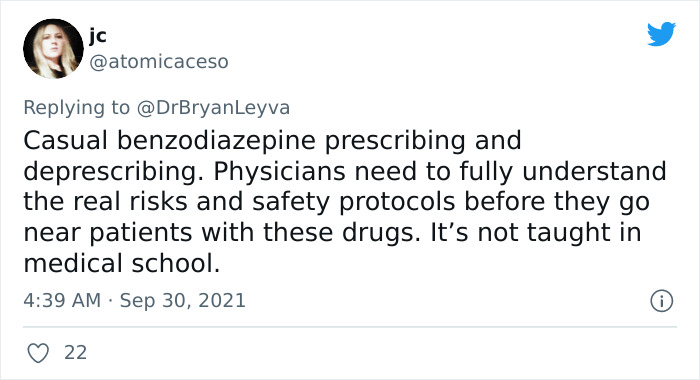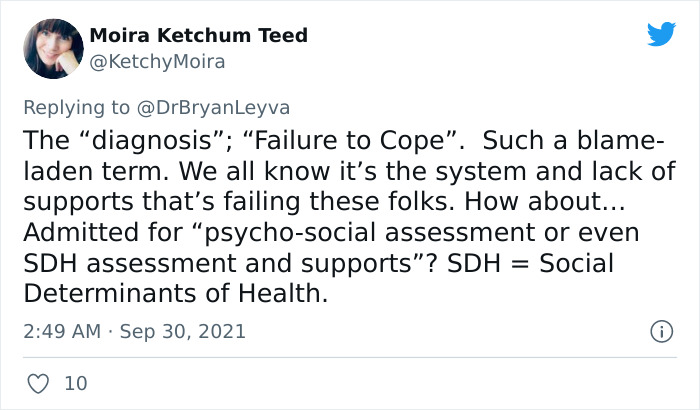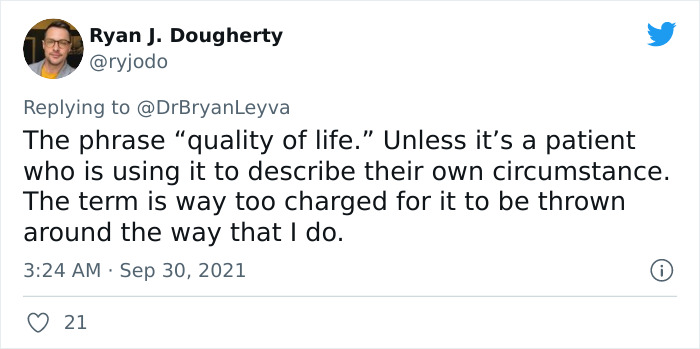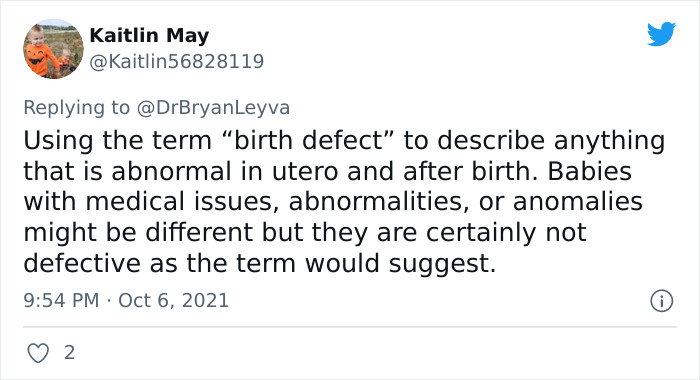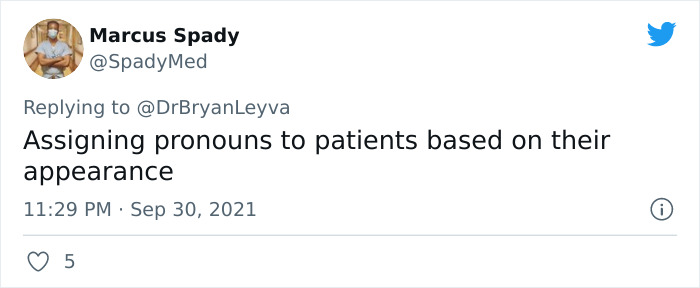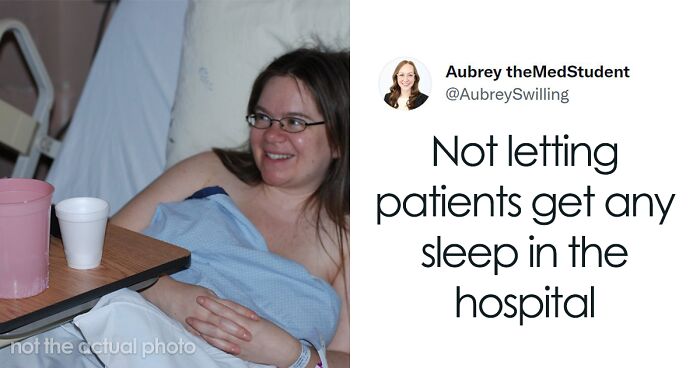
107Kviews
“Not Letting Patients Get Any Sleep”: 30 Things That Should Not Be Normal In Healthcare, According To Twitter Users
When a person goes to a medical institution, they expect to be treated equally as others, they expect to be heard and provided a solution. Unfortunately, that’s not how it works all the time and patients get disappointed with their healthcare providers.
The reasons can vary: it could be that the healthcare worker has a personal problem with a patient, maybe they worked 24 hours in a row and just want to be finished with their shift, or they don’t devote themselves to their job as much anymore because they’re burnt out.
There are obviously a lot of issues in the medical field that both patients and healthcare professionals have to deal with. And Twitter user @DrBryanLeyva wanted to know what people feel is the problem that is the worst in their eyes. Bryan asked, “What should we denormalize in healthcare?” and people had so much to say.

Image credits: DrBryanLeyva
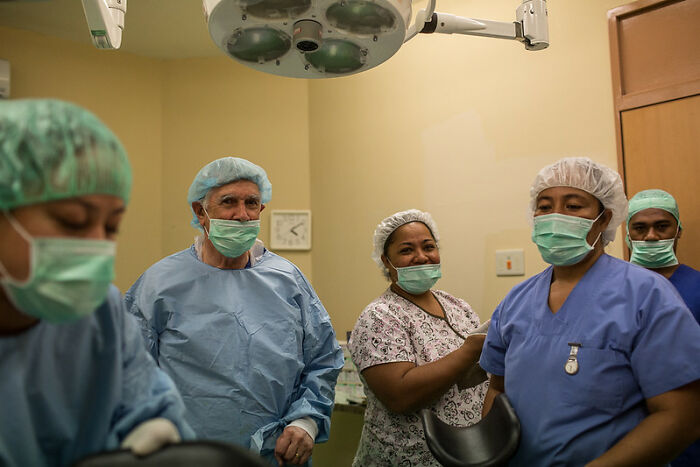
Image credits: Department of Foreign Affairs and Trade
More info: Twitter
This post may include affiliate links.
Bryan Leyva is a Doctor of Medicine who went to Warren Alpert Medical School of Brown University and now he is a public health researcher at the University of Minnesota. Bryan focuses his research on “the behavioral and social determinants of health; b) racial and socioeconomic health disparities; c) models, measures, and strategies to improve quality and equity in health care.”
"Psychosomatic" isn't an insult. It means "(of a physical illness or other condition) caused or aggravated by a mental factor such as internal conflict or stress." Anxiety and depression can cause physical symptoms to worsen, and it's necessary to point that out clinically in order to properly treat a patient.
He wanted to hear the vox populi and asked “What should we denormalize in healthcare?” which essentially means, what are the biggest problems in the healthcare system that bother people the most.
Both people who were patients and medical professionals joined the conversation and a lot of issues surfaced. Some pointed out that racial and sexual discrimination or applying stereotypes still are existing problems that prevent doctors from giving quality service.
This is no joke. When I was on chemo, they used start it of an evening, and well 4 or 5 bags of fluid has to go somewhere, so I was up all night peeing. You can therefore imagine my delight when someone comes round offering you breakfast at 7.30 in the morning! I won't complain too much though, as I owe my life to them and the care they gave me.
Exactly!!! When a 15 year old is telling you while crying that her quality of life is so bad that she prefers to get rid of everything inside her or to die you don't f*****g tell her that it's normal and you better get used to it cause it's going to be like that for the next 30-40 years!!! (Real dialogue with my first ob!)
I was at university and broke my pinky finger during the night. I went to Student health first thing in the morning when they opened. They put me in an exam room to wait for next available. I sat in the room for four hours. I thought things were getting very quite. I walked down hallway and everyone had gone to lunch except one attendant at the front desk. He asked me what I was doing! Not a happy day.
Others were pointing to the absurd amounts of money they have to pay in order to get the help they need. There were a quite significant number of people who thought that doctors will not believe how much pain patients, especially women, are in.
Miscommunication was also brought up as doctors will not try to explain conditions and illnesses to their patients in a language they would understand.
This is sadly one of the drawbacks of the NHS. The healthcare might be free, but it often involves a fair bit of waiting around, meaning more time off work, and if you have driven the to the hospital it can also mean increased parking charges if they are running late. I think we need to start an awareness campaign with fake invoices "if this had been America, this is what you would'be been charged". People might appreciate them more.
Medical professionals themselves were mentioning burnout and long shifts as well as disrespect among colleagues. So both sides see problems that need to be fixed and every issue that has been mentioned has to be dealt with individually as there is no one solution that would fit all challenges, so maybe that is why it is so difficult to change the situation.
Medical professionals are a crucial part of our society as they contain the knowledge of how to heal and survive when you are literally in the process of stepping into a coffin. But if they can't provide the care people need, it is really concerning and admitting that there are problems is already progress towards finding a solution.
So what would you answer to Bryan’s question? Let us know in the comments and also show us what tweets you agree with the most by upvoting them!
When you can hear the nursing staff making jokes about you from outside your room in the emergency department. Guys, I am fat, not stupid and deaf.
Ding ding Ding! Anxiety disorder, female, told my crippling pain must be stomach bug, twice turned away from hospital. Third time I went back i was really bad, and it caused a huge amount of surgeries that may have been avoided. I mean jeez if I'm saying it's only one notch below childbirth, pls listen. Anxious doesn't always mean wrong.
As a person with several conditions that CAUSE weight gain as a side effect, I'm still classified as obese even as I know that if I wasn't watching every carb (dibeties 2) every cup of water or how much iron I eat(PCOS)(anemia) , or keep up with daily walks (arthritis), I could easily be 300lbs. So being 40lb overweight is NOT the issue.
Well, I believe it depends on what kind of doctor you are there to see and what your medical issue is. I was told at the Ophthalmologist to put my clothes back on. The mammogram lady said I could've kept my pants on. It's very confusing.
Over specialization is an issue for us in Korea. It seems like each specialist only knows about their specialty and nothing about general health or anything related to their field. My husband has bad allergies and weird sinus structure. Not one sinus doctor has offered allergy meds, they just want to do surgery. Finally saw an allergist, still no meds but wants to do expensive immunotherapy to "cure" his moderate allergies for the low cost of $800/year AND getting rid of our pets. Seems like a daily pill would be a lot cheaper...
Gina seems misinformed. Kidneys? Nephrology. Brain issues? Neurology. Cancer? Oncology, etc. There's not exactly a Geriatric One-Stop-Shopping Center for specialists. It would be great if there was, though.
This attitude probably has its roots in some toxic masculinity initiation thing. Rarely do I hear women bragging about their burnout schedule, but it's bragging rights for some men. Very dangerous bragging rights.
My hospital calls it "failure to thrive". I like that better. Means, might be surviving, but quality of life could be improved if we can find the source of what's slowing you down/troubling you. And maybe we can help you be more you with some supports.
Shaming doctors for making medical mistakes. I know it sounds logical and deserved in theory, but what it really means is that healthcare providers hide their mistakes and healthcare provider employers find excuses and reasons to blame the patient. We can’t have good healthcare if we don’t allow providers to admit when they’ve made a mistake and not risk their entire career. Doctors are human. Humans make mistakes.
This does depend on the mistake though. If a doctor makes an incorrect diagnosis because a patient's symptoms were vague that's just a normal, human mistake, but if a doctor amputates the wrong leg that's something they should be shamed for.
Load More Replies...(US) think many of these problems could be changed by moving from a "for-profit" healthcare system to a universal healthcare one. The profit side pushes doctors to maximize the number of patients they see. Insurance companies demand as little testing as possible. What I have been seeing lately is doctors will only see you for 1 problem at a time. That wastes time, is expensive, and makes for poorer healthcare overall.
Thank you for having a holistic view of this issue. I completely agree. It’s so easy to blame the insurance industry but the truth is that everyone is out to make money on your health in the US. Hospitals are owned by large companies that are publicly traded on the stock market and pay dividends to shareholders. Physicians who do great work are paid a whole lot more in this country than they are other countries. Hence why we have a lot of foreign doctors that come over here to start their careers versus their home countries. And yes insurance is certainly not getting off scot free either. That doesn’t even touch pharmacy and medical supply cost issues. It’s a broken system and there’s not just one responsible party.
Load More Replies...Let's add: having people in outpatient with complex illnesses bear the full burden of managing their care. I don't think doctors realize that when you've got a patient with multisystemic issues, that patient -- already sicker than most -- is slammed with a lot of very stressful work. Organize your many medications, spend hours on the phone with medical receptionists, medical records departments, the insurance company, the pharmacy. Get your sick body to and from all your appointments on time. It's a second job for someone probably struggling to keep their actual paid job, or who is on disability because they CAN'T perform a job. And it's a recipe for disaster. You're asking someone who is ILL to navigate systems they're not familiar with, oversee communication between systems that are not designed to communicate with each other... of COURSE medications will be forgotten. Of COURSE important follow-up won't happen. Chronically ill patients, and patients with complex multisystemic issues, need wraparound support even after they leave the hospital, and there should be a component of healthcare that addresses this gap.
For my husband it is like a second job. Multiple doctor visits in a week, hours and hours in the waiting room, examinations,... it takes a lot of time and it causes so much stress
Load More Replies...Shaming doctors for making medical mistakes. I know it sounds logical and deserved in theory, but what it really means is that healthcare providers hide their mistakes and healthcare provider employers find excuses and reasons to blame the patient. We can’t have good healthcare if we don’t allow providers to admit when they’ve made a mistake and not risk their entire career. Doctors are human. Humans make mistakes.
This does depend on the mistake though. If a doctor makes an incorrect diagnosis because a patient's symptoms were vague that's just a normal, human mistake, but if a doctor amputates the wrong leg that's something they should be shamed for.
Load More Replies...(US) think many of these problems could be changed by moving from a "for-profit" healthcare system to a universal healthcare one. The profit side pushes doctors to maximize the number of patients they see. Insurance companies demand as little testing as possible. What I have been seeing lately is doctors will only see you for 1 problem at a time. That wastes time, is expensive, and makes for poorer healthcare overall.
Thank you for having a holistic view of this issue. I completely agree. It’s so easy to blame the insurance industry but the truth is that everyone is out to make money on your health in the US. Hospitals are owned by large companies that are publicly traded on the stock market and pay dividends to shareholders. Physicians who do great work are paid a whole lot more in this country than they are other countries. Hence why we have a lot of foreign doctors that come over here to start their careers versus their home countries. And yes insurance is certainly not getting off scot free either. That doesn’t even touch pharmacy and medical supply cost issues. It’s a broken system and there’s not just one responsible party.
Load More Replies...Let's add: having people in outpatient with complex illnesses bear the full burden of managing their care. I don't think doctors realize that when you've got a patient with multisystemic issues, that patient -- already sicker than most -- is slammed with a lot of very stressful work. Organize your many medications, spend hours on the phone with medical receptionists, medical records departments, the insurance company, the pharmacy. Get your sick body to and from all your appointments on time. It's a second job for someone probably struggling to keep their actual paid job, or who is on disability because they CAN'T perform a job. And it's a recipe for disaster. You're asking someone who is ILL to navigate systems they're not familiar with, oversee communication between systems that are not designed to communicate with each other... of COURSE medications will be forgotten. Of COURSE important follow-up won't happen. Chronically ill patients, and patients with complex multisystemic issues, need wraparound support even after they leave the hospital, and there should be a component of healthcare that addresses this gap.
For my husband it is like a second job. Multiple doctor visits in a week, hours and hours in the waiting room, examinations,... it takes a lot of time and it causes so much stress
Load More Replies...
 Dark Mode
Dark Mode  No fees, cancel anytime
No fees, cancel anytime 




